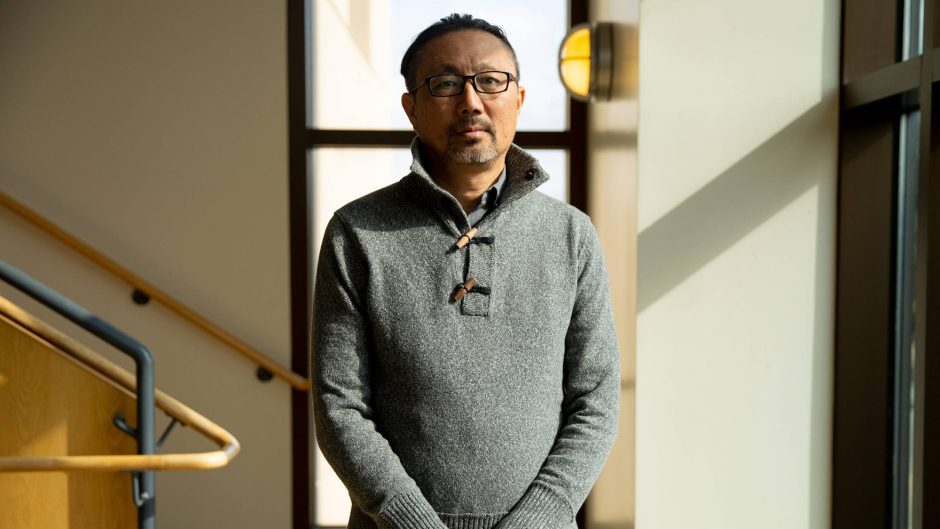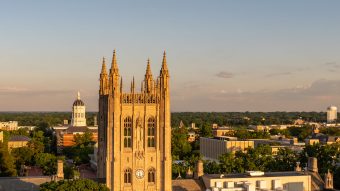
Sept. 5, 2023
Ukraine has long been one of the world’s top producers of grains like wheat, corn and barley, and produces half of the world’s sunflower oil. But Russia’s invasion and the war following have left the country’s agriculture industry with a litany of problems to overcome to continue serving as the world’s breadbasket. Ukraine’s Ministry of Agrarian Policy and Food has mapped out eight areas in need of immediate assistance, and among them is pollution of farmland throughout the country.
Meanwhile, across the Atlantic and land-locked in the heartland of the U.S., Chung-Ho Lin, a research professor at the University of Missouri Center for Agroforestry Bioremediation Program in the MU College of Agriculture, Food and Natural Resources’ (CAFNR) School of Natural Resources, is putting more than two decades of his scientific research on bioremediation to work to combat this problem and help prevent global implications.
“I’m glad we can be useful and we can use this science to help humanity,” Lin said. “We’ve developed a lot of technology in the lab that I think we can scale up to help the people of Ukraine.”
As Russian forces have moved through Ukraine, they have left farmland riddled with contaminants such as ammunition or propellants either from military operations or in being used as a dumping ground. This means TNT and heavy metals like mercury and cadmium are now mixed into the soil. Left as they are, plants growing in that soil would take up those heavy metals and become contaminated themselves.
Lin’s life work just happens to focus on ways to affordably and sustainably remove these kinds of contaminates from soils, and he is part of a working group at Mizzou partnering with the Ukrainian Embassy. Through this group – which was organized by MU Extension Program Director and Professor Craig Roberts and includes scientists from throughout CAFNR as well as John Brockman, professor of chemistry at the MU Research Reactor – Lin has developed a plan to help get his science into the hands of Ukrainian farmers who need it most.
“In the reactor, we have probably one of the best tools for analysis and remediation of heavy metals,” Lin said.
This is where his plan begins. Currently scientists in Ukraine are extracting organic contaminants from Ukrainian soils and shipping them to his lab at Mizzou. This allows Mizzou researchers to identify and characterize the species of the contaminants, which will help guide what process to use in remediating them, which is the next step.
Lin views his role in this problem-solving effort as being akin to an architect. He said he has created building blocks and is now assembling them into a scientific package to be delivered to the public for this humanitarian effort.
“This is why CAFNR is so important,” Lin said. “It fosters this environment where we can work together – biochemistry and plant scientists – and have a global impact even though we are geographically in a college town in the center of the country. This impact has no boundary.”



